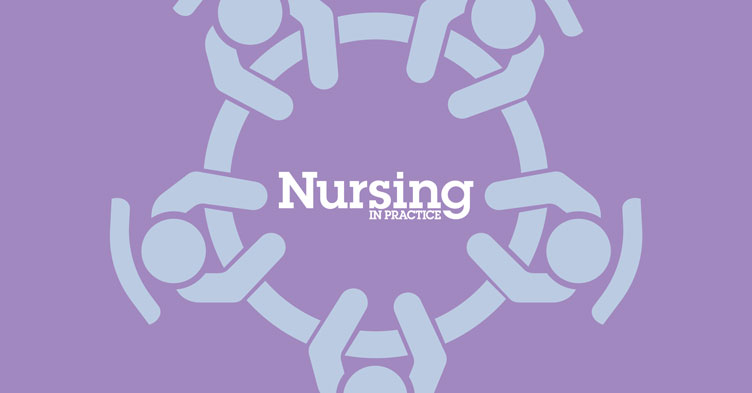Nursing in Practice GPN Manifesto Roundtable
A roundtable meeting run by Nursing in Practice has highlighted concerns about the recruitment and retention of general practice nurses (GPNs) to meet increasing challenges in patient care.

The first ‘In discussion’ event, on Recruitment, retention and pay, is part of a series based on the Nursing in Practice GPN Manifesto, released this year reflecting important issues for the sector raised by nurses working in primary care.
The manifesto for general practice nursing highlights key areas in which nurses want to see improvements.
Our first roundtable event meeting report – available to read online at nursinginpractice.com - explores ongoing challenges around pay, terms and conditions and the barriers to recruitment and retention within the sector.
Five nurses took part in the discussion, sharing their views on what needs to happen for general practice to be an attractive place for experienced nurses to work.
One participant, Sara Baldwin, nurse manager in a GP practice in the northwest of England, said that perceptions of nursing in general practice, and the wide range of skills required for the role, needed to change. Nursing students, for example, might not ‘get the fact that actually you’re going to upskill massively when you come into general practice,’ she said.
Rebecca Shearer, lead nurse at Westwood Medical Centre and an advanced nurse practitioner, said the ‘opportunities in practice nursing at the minute are huge’ as the profession was ‘taking on so much’.
And Jenny Aston, an advanced nurse practitioner working in a large primary care network outside Cambridge, argued GPN pay should be standardised against national frameworks, so that nurses could ensure that their pay and employment conditions were equitable with nursing roles across the NHS.
The Nursing in Practice GPN Manifesto calls for action on pay, conditions and recruitment and retention to help resolve widespread job vacancies in general practice and the number of GPNs who are approaching retirement or choosing to look for roles elsewhere.
A second roundtable discussion will follow – covering aspects of the importance of the general practice nurse role in patient care – and further discussions based on the manifesto points are also planned.
Megan Ford, Nursing in Practice’s news editor, explained: ‘In the roundtable discussion nurses emphasised that it is so vital that general practice is visible, attractive and accessible to those seeking a nursing career and that efforts are made to recognise, value and ultimately retain those in post. Perhaps of greater concern is the funding barriers preventing students from being able to learn in a general practice setting in the first place.’
Carolyn Scott, Nursing in Practice’s editor, said: ‘We’re grateful to the nurses who have given their time to be involved in the GPN Manifesto and the new roundtable series. General practice needs to work out how it maintains a viable, supported, and expert general practice nursing workforce. Understanding where the problems are and how things could be moved forward is a very important debate to have. The Nursing in Practice GPN manifesto is helping to attract attention around issues for general practice nurses at an important time for the NHS.’
For the opportunity to reach our audience of primary care nurses, through a variety of digital advertising options, please contact us today.
The next GPN manifesto roundtable meeting report will be published this month.
The 10 points of the manifesto for general practice nursing:
The government should ensure general practice nurses have the same pay, terms and conditions as their secondary care colleagues.
The NHS, practices, universities and other stakeholders need to change the narrative, to encourage more nurses to choose general practice.
Practices, PCNs, the NHS and government should do more to promote the health of our less well-off families.
#4 REINSTATE TIME FOR LONG-TERM CONDITIONS
Practices and PCNs need to free up time for GPNs to empower patients to manage their long-term conditions, including diabetes, asthma and COPD.
#5 PRIORITISE HEALTH PROMOTION
NHS England, PCNs, and GP practices should ensure GPNs have the time and resources to carry out their crucial role in public health promotion and disease prevention.
GPN employers, PCNs and nursing bodies need to support nurses with their health and care, so they can care for others.
#7 FOCUS ON PROFESSIONAL DEVELOPMENT
All nurses should be given the time for professional development to progress their careers. NHS England, PCNs and practices should encourage and support the GPN and ANP roles to grow in general practice.
It is important for general practice nurses to consider parity of esteem – valuing the patients’ mental health needs equally to their physical health.
GPNs need to play an important role in overturning the decline in childhood immunisation uptake.
General practice needs to continue to evolve to serve patients better, adopting approved digital platforms and applications to improve patient care and outcomes.